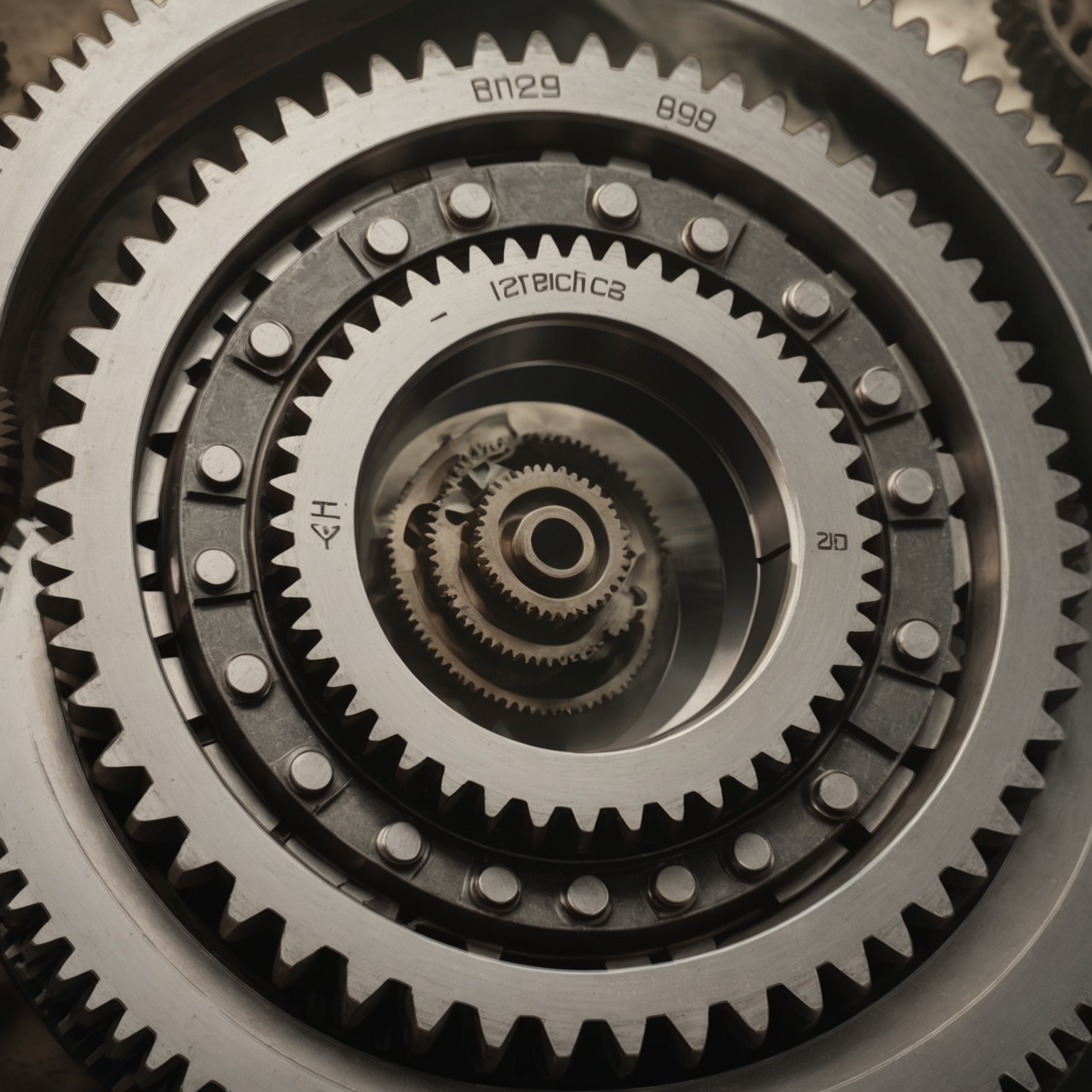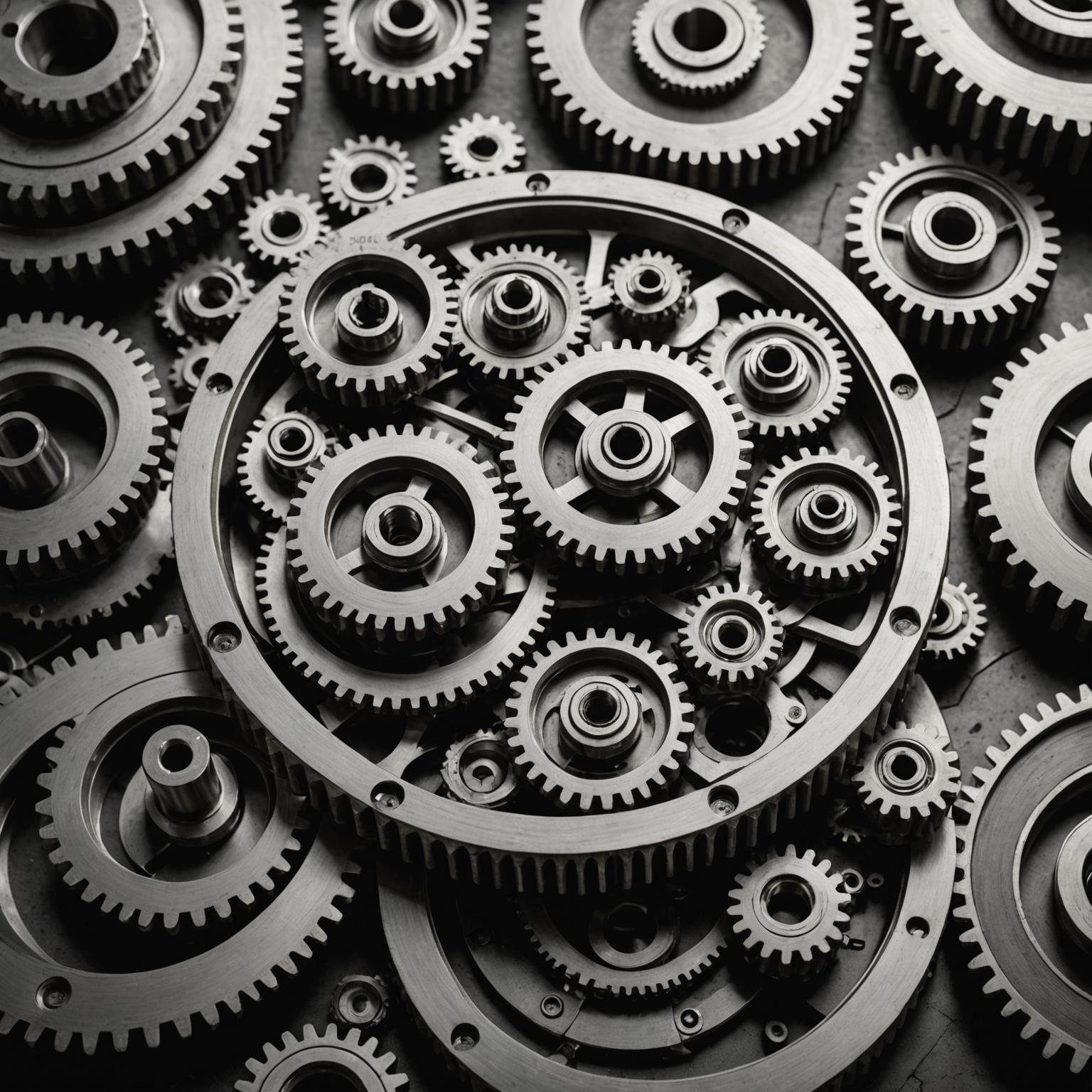CNC machine technology has revolutionized the manufacturing industry, enabling precise and efficient production of complex components that drive modern innovation. At the core of this transformation is the ability to craft intricate parts with unparalleled accuracy, such as the revolutionary ZenithRift Precision Gear System. This system exemplifies how CNC machine processes can turn raw materials into high-performance mechanical wonders, blending art and engineering to meet the demands of various sectors. By leveraging advanced CNC machine capabilities, manufacturers can achieve the exacting standards required for optimal functionality and durability in today’s fast-paced world.

Understanding CNC Machining Basics
CNC machining is a cornerstone of modern manufacturing, utilizing computer-controlled tools to shape materials with remarkable precision. This process involves removing layers from a solid block of material, often metal, to create custom parts that fit specific designs. For instance, in creating the ZenithRift Precision Gear System, CNC machining plays a pivotal role by ensuring that laser-etched gear teeth are formed with frictionless engagement and smooth operation. The technique allows for intricate details, like the high-grade steel construction and proprietary heat treatment mentioned in the system’s description, to be executed flawlessly. CNC machining not only reduces wear and tear but also enhances the overall strength and resilience of components, making it ideal for applications in automotive, aerospace, and industrial machinery. With CNC machining, engineers can iterate designs quickly, producing gears that symbolize structured elegance and peak efficiency, all while maintaining the versatility needed for diverse uses.
The Advantages of CNC Milling Machines in Precision Engineering
CNC milling machines take CNC machining to the next level by offering versatile cutting capabilities that carve out complex shapes with ease. These machines use rotating tools to remove material from a workpiece, allowing for the creation of symmetrical features, such as the exquisite outer gear and meticulously placed bolt details in the ZenithRift system. Imagine the whir of the spindle as it etches precise patterns, each tooth calculated for maximum power transmission and torque control, evoking a sense of harmony between form and function. CNC milling machines are essential for producing components that withstand extreme conditions, thanks to their ability to handle high-grade materials with minimal error margins. In the context of the ZenithRift Precision Gear System, a CNC milling machine would expertly craft the center void, engineered for adaptability across various applications, thereby redefining expectations in mechanical performance. This technology not only streamlines production but also ensures that every piece reflects a commitment to innovation, much like the groundbreaking craftsmanship described in the system’s overview.
Innovations and Applications of CNC Technology
As CNC technology evolves, it continues to push the boundaries of what’s possible in precision manufacturing. The ZenithRift Precision Gear System serves as a prime example, where CNC machining and CNC milling machines collaborate to deliver a product that is both aesthetically pleasing and functionally superior. Picture the gears in motion, their laser-etched teeth gliding effortlessly, a testament to the meticulous processes involved. This innovation extends to sectors like automotive, where CNC machines fabricate parts that enhance vehicle efficiency, or aerospace, where every millimeter counts for safety and performance. CNC machining enables rapid prototyping and customization, allowing companies to adapt quickly to market needs, while CNC milling machines provide the fine details that make products stand out. The system’s high-grade steel and heat-treated components, for instance, are likely produced using advanced CNC techniques, ensuring longevity and reliability. By integrating these technologies, manufacturers can achieve a perfect balance of form and function, driving forward the evolution of motion in ways that were once unimaginable.
Exploring the Future of CNC Machines in Industry
The future of CNC machines is bright, with ongoing advancements promising even greater precision and efficiency. Building on the foundations of CNC machining and CNC milling machines, new developments are focusing on automation and AI integration, which could further enhance systems like ZenithRift. Envision a factory floor where CNC machines operate with minimal human intervention, crafting gear systems that adapt in real-time to design changes, reducing production time and costs. This level of sophistication ensures that products not only meet but exceed industry standards, much like the interlocking circular gears in ZenithRift that offer optimum performance. As businesses adopt these technologies, they gain a competitive edge, producing components that are durable, versatile, and ready for the demands of modern applications. Whether in industrial settings or specialized niches, CNC machines continue to symbolize the pinnacle of engineering excellence, fostering innovation that propels industries forward.
Conclusion: Embracing CNC Machine Technology
In summary, CNC machine technology, along with CNC machining and CNC milling machines, represents a leap in manufacturing that brings to life products like the ZenithRift Precision Gear System. From the initial design to the final assembly, these machines ensure every detail is executed with vivid precision, turning concepts into tangible realities that drive progress. The descriptive beauty of a well-crafted gear system, with its smooth operations and resilient build, underscores the transformative power of this technology. As we look ahead, embracing CNC machines will undoubtedly lead to more groundbreaking innovations, making them indispensable in the quest for excellence in engineering and beyond. This evolution encapsulates the essence of modern machinery, where precision meets creativity to shape the future.

